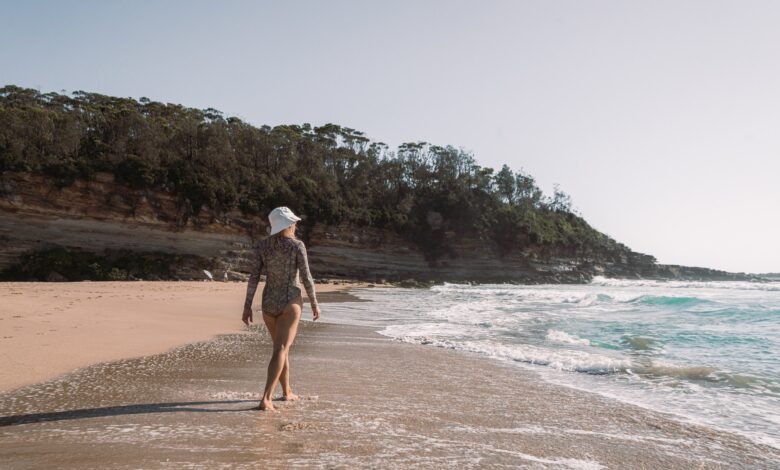
[ad_1]
21 May Where Should You Travel After Rehab?
Post-rehab travel is not usually recommended for people who are recovering from severe substance use disorders (SUD). However, for those with a milder SUD and those whose drug or alcohol use was triggered by problems in their home environment, a vacation or even a temporary move might be beneficial and give one a safer way to avoid an early relapse.
Of course, this strategy isn’t without its risks. Not everyone is emotionally ready to be independent right after rehab — something that’s important if you’re traveling. Some people also experience some kind of travel anxiety, which raises the risk of substance misuse.
However, in the right circumstances, traveling or moving elsewhere after rehab can be a good way to avoid substance use triggers and give yourself more time to heal. If you choose the right destination, you can set yourself up for long-term success.
Below are some pointers for choosing the best post-rehab travel destinations. If you live in and around North Texas and need help for and SUD, check out this resource on rehab centers in Dallas.
1.) Leave out party destinations
You should pretty much leave out any city or country that is well-known for a raucous, drug and alcohol-fueled party atmosphere. While these places may also have plenty of great sober activities available, you may not always be able to avoid people who will offer you drugs or alcohol, especially if the area’s tourism industry is highly optimized for this kind of activity.
The only time you should consider these places is on a group tour with a companion that can help keep you from relapsing. Even then, you’re likely to find great sober alternatives to these party destinations within the same area. Check out nearby places that offer history, architecture, culture, and cuisine as their main selling points instead.
2.) Consider nature trails
If you’re in decent shape (or even if you aren’t), hiking along nature trails can be an excellent way to keep you from an early relapse and give your mental health a boost as well. When done alone or with the right group, going on hikes can effectively keep you from an early relapse so soon after rehab.
There are other benefits as well. Activities like hiking and swimming can help relieve depression and anxiety symptoms that are both major contributors to substance use disorders. Just being in nature can also give individuals a sense of well-being and contentment, which helps encourage continued recovery. The exercise can also serve to regulate your mood and give you the best quality sleep you’ve had in a while.
3.) Check out “sober-friendly” destinations
If you’re recovering from an alcohol use disorder, it may be difficult to find places in America that effectively remove you from relapse triggers. Alcohol is readily available in most places, not just at liquor and convenience stores, but also at hotels, some restaurants, and even at professional sporting events and amusement parks. Unfortunately, some of these places can be difficult to avoid if you’re traveling.
However, there are many potential destinations within and outside of the USA that might be a good choice for a sober vacation. There are still dozens of “dry” and “semi-dry” counties throughout the United States, many of them featuring delightful and quirky experiences well off the beaten track.
Outside the US, the Muslim world is an incredibly diverse set of nations and cultures, and virtually all have restrictions on alcohol you might appreciate. Scandinavian countries are also culturally less heavy drinkers compared to their Eastern and Western European neighbors, so you may want to consider a trip to Sweden, Finland, or Norway as well.
If you have a drug use disorder, the same things generally apply. Make sure that the places you will be visiting (or moving to) do not have your substance of choice in any appreciable quantities. For instance, opioids are still relatively inaccessible in countries like Japan, Korea, New Zealand, and Singapore, so may want to consider these and similar countries as destinations if you had a problem with opioid drugs.
4.) Try doing volunteer work
Sometimes, the destination is less important than what you’re planning to do there.While leaving home to give yourself more time to heal is a valid recovery strategy, you may also want to consider traveling to do something with a bit more significance.
A study in the UK has found that volunteer and community work is more effective than medical intervention at preventing SUD relapse. This confirms what thousands of mental health professionals have been observing for decades — that paying it forward improves your mental and emotional well-being.
A better mental and emotional state makes individuals more resilient to potential relapse triggers, making it more likely that they will avoid early relapses and make a full recovery.
Doing volunteer work — at home or elsewhere — can also be beneficial in other ways. The most obvious one is that it expands one’s network beyond one’s negative influences and other people who may have contributed to the SUD. It can also help teach recovering individuals new skills that could help them be more confident and independent throughout their recovery.
Traveling after rehab is certainly not a foolproof strategy, particularly for people with severe SUD. However, if you went to rehab for a mild SUD and have the resources and the support network to pull it off, traveling offers several benefits. It can offer a safe place to apply the learnings you made in rehab, and it can provide the necessary distraction to keep you from relapsing early on. Best of all, it may even help you gain a better perspective on your own recovery.
By choosing your destinations carefully, you not only maximize your odds of success, but you can also go a long way towards making the experience of recovery a truly valuable and positive one. Good luck, and stay well!
[ad_2]
Source link






